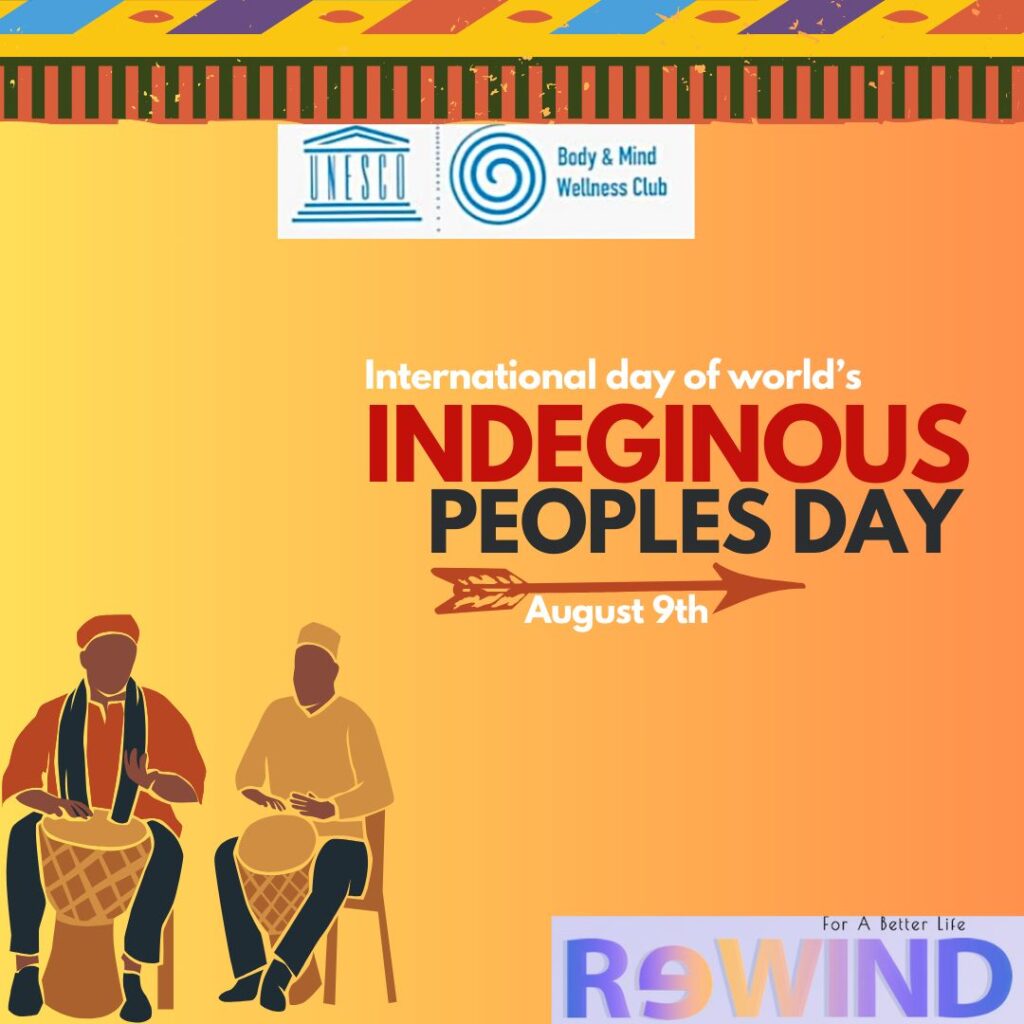
The International Day of the World’s Indigenous Peoples, observed annually on August 9th, is a global celebration that honors the rich cultural heritage, traditions, and contributions of indigenous communities worldwide (See here). This day serves as a platform to raise awareness about the challenges faced by indigenous peoples and promote their rights and well-being.
The Origin
The United Nations General Assembly established this observance in December 1994 through Resolution 49/214. The date, August 9th, was chosen to commemorate the first meeting of the UN Working Group on Indigenous Populations, which took place in 1982. This working group played a crucial role in bringing indigenous issues to the forefront of international discussions.
The day’s inception was part of a broader initiative by the UN to address the concerns of indigenous communities. In 1993, the UN declared the International Year of the World’s Indigenous Peoples, which was followed by two International Decades dedicated to indigenous peoples (1995-2004 and 2005-2015) (See here).
Importance of the Day
Promoting Human Rights and Human Dignity: The International Day of the World’s Indigenous People underscores the importance of human rights and human dignity for all. Indigenous communities have long struggled for recognition and respect, facing numerous violations of their fundamental rights. This day serves as a reminder of the ongoing need to advocate for their rights, ensuring that they can live with dignity, free from discrimination and injustice. The observance of this day helps bring attention to issues such as land rights, cultural preservation, and access to education and healthcare, which are essential for the upliftment and empowerment of indigenous populations. By addressing these challenges, we contribute to a more equitable and just world, where every individual’s rights are respected and protected.
Fostering Diversion, Inclusion, and Equity: A key aspect of the International Day of the World’s Indigenous People is promoting diversion, inclusion, and equity. Indigenous peoples’ diverse cultures, languages, and traditions enrich the global tapestry, offering unique perspectives and solutions to contemporary challenges. This day encourages us to celebrate this diversity and to ensure that Indigenous voices are included in decision-making processes at all levels. By fostering inclusion and equity, we can create societies where indigenous peoples have equal opportunities to thrive and contribute to their communities. This approach not only benefits indigenous populations but also enhances social cohesion and mutual understanding among all cultural groups.
Taking Action: The International Day of the World’s Indigenous People calls on individuals, organizations, and governments to take meaningful action to support indigenous communities. This can include advocating for policies that protect indigenous rights, supporting initiatives that preserve indigenous languages and cultures, and promoting economic opportunities that benefit indigenous peoples. By taking action, we can help to create a world where indigenous peoples are respected, included, and able to thrive. This not only benefits indigenous communities but also enriches the broader society, creating a more inclusive, equitable, and harmonious world.
Spreading Positivity: Ultimately, the International Day of the World’s Indigenous People is about spreading positivity and celebrating the resilience, strength, and contributions of indigenous peoples. By recognizing and honoring their heritage, we can foster a spirit of respect, inclusion, and solidarity, ensuring that the rights and dignity of all people are upheld.
Theme for 2024
The International Day of the World’s Indigenous Peoples in 2024 will focus on the theme “Protecting the Rights of Indigenous Peoples in Voluntary Isolation and Initial Contact”. This theme highlights a critical and often overlooked aspect of indigenous rights. Indigenous peoples in voluntary isolation are groups who avoid contact with the outside world, often as a means of cultural preservation and self-protection. Those in initial contact have only recently begun interacting with mainstream society. The 2024 theme aims to raise awareness about the unique vulnerabilities and rights of these groups, who face threats from encroachment on their lands, resource exploitation, and unwanted contact that can lead to devastating health consequences. By spotlighting this issue, the UN seeks to promote policies and actions that respect these communities’ choices regarding isolation or contact, protect their territories, and ensure their survival and well-being in accordance with their customs and desires.
UNESCO BMW’s Involvement
We are dedicated to preserving and showcasing native cultures and traditions by hosting arts and crafts seminars and cultural competitions that promote traditional indigenous demonstrations. Moreover, we have organized virtual sessions to highlight the talents of young individuals who are enthusiastic about preserving Indigenous culture. With the newly launched ReWIND initiative, we aim to enhance mental well-being and uplift spirits in celebration of this day.
UNESCO BMW’s Vision
Our vision mission encompasses three main goals that are also in line with this occasion today and engage people of all ages, especially the youth improvement of the inner ecosystem, enhancement of inner creativity through arts and crafts, and, lastly, encouragement of inner peace globally.
By: Aman and Vivek
(Vivek Raj Singh)
(Aman Fatima Abbasi)
Sources:
- https://en.wikipedia.org/wiki/International_Day_of_the_World%27s_Indigenous_Peoples
- http://undocs.org/A/RES/49/214
- https://www.un.org/en/observances/indigenous-day/background
- https://www.un.org/en/observances/indigenous-day#:~:text=This%20International%20Day%20of%20the,Voluntary%20Isolation%20and%20Initial%20Contact%27.
- https://unescobmw.org/2021/10/21/craft-cuisines-workshops/
- https://unescobmw.org/2023/04/17/yearly-art-competition/
- https://www.youtube.com/watch?v=ZK09xn9j9tM&list=PLRvpG2niGsE9pJNUQYnHavAahfpXHO4vA
- https://unescobmw.org/2024/04/28/rewind/
- https://unescobmw.org/about-us/our-mission/